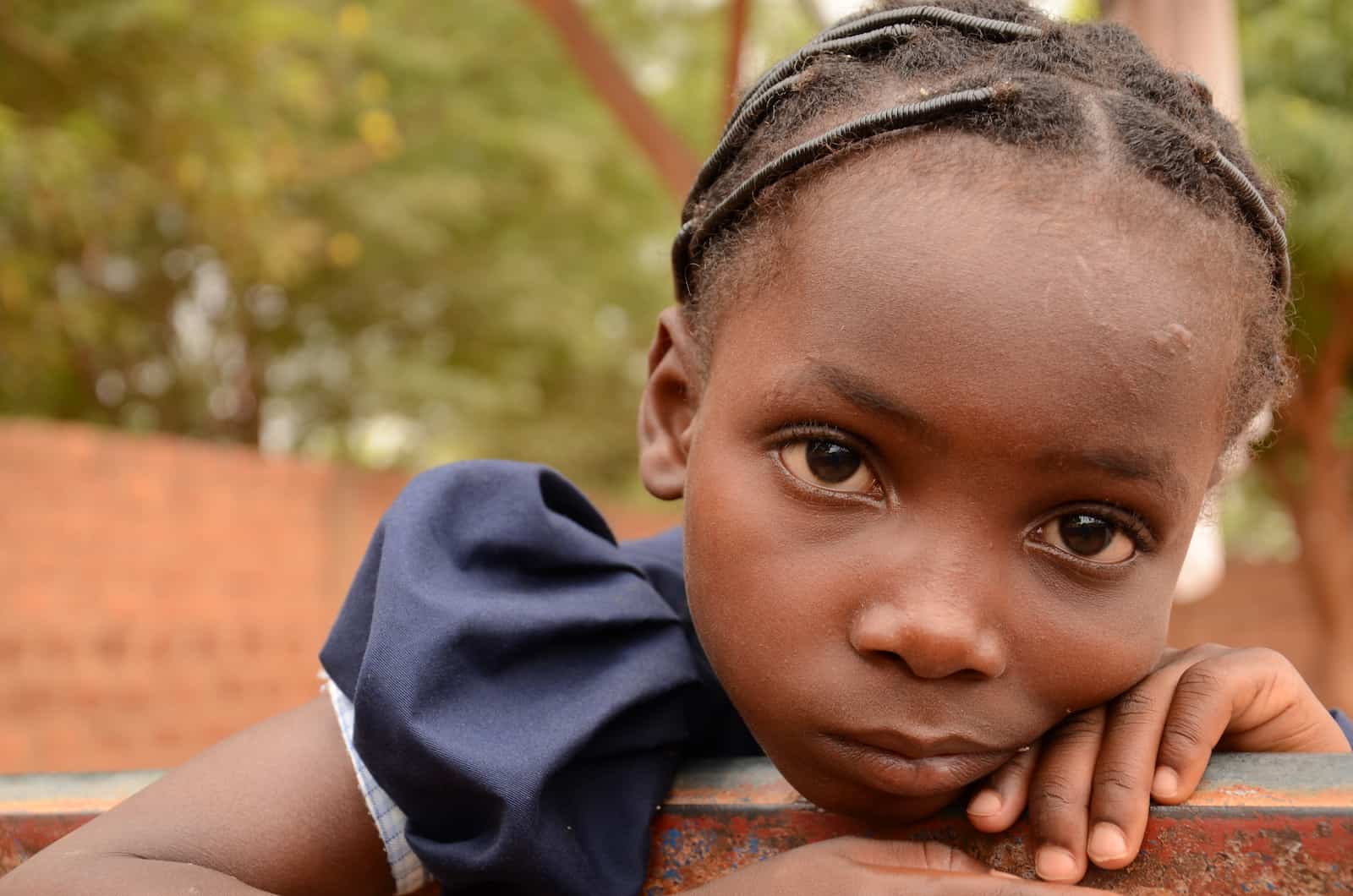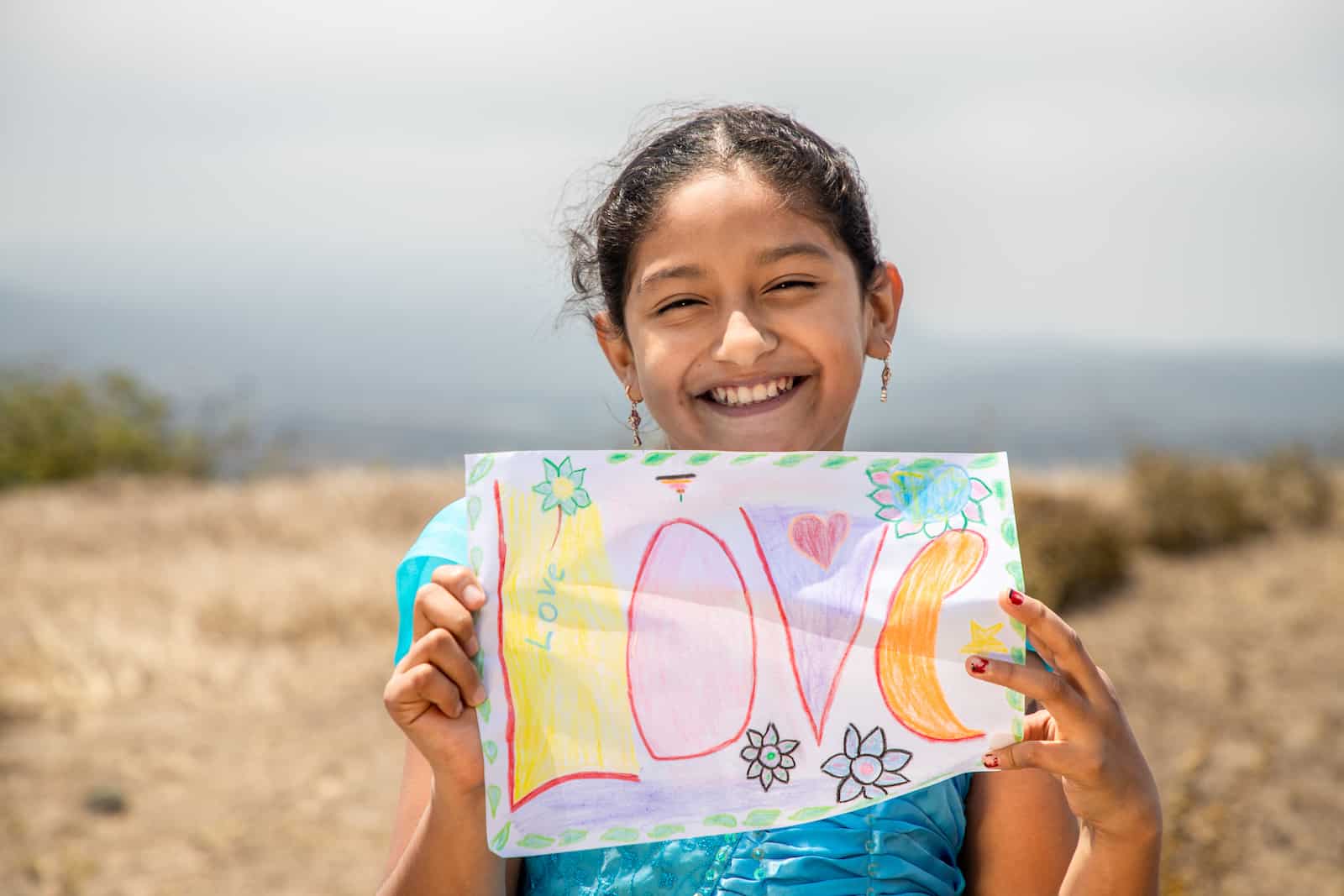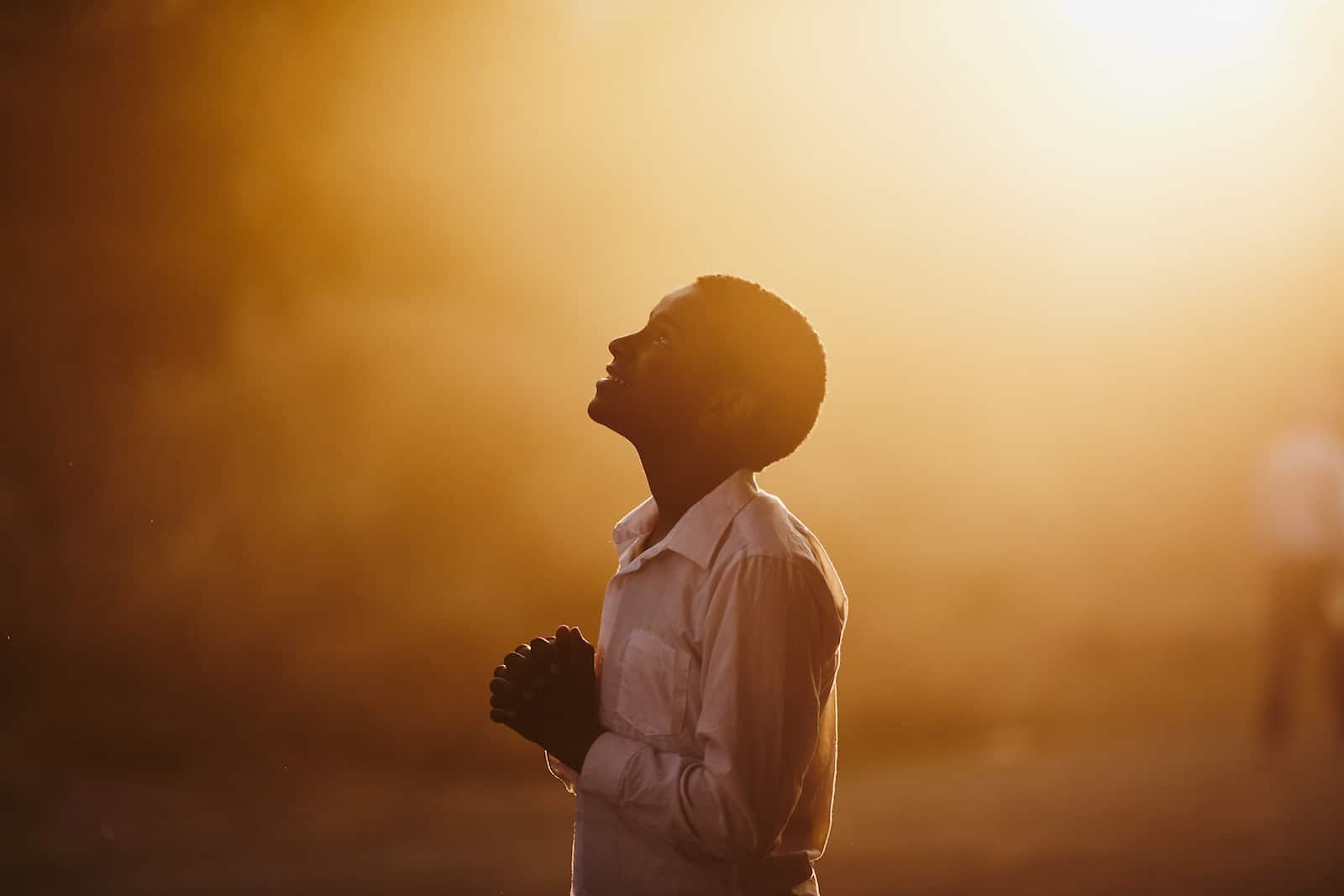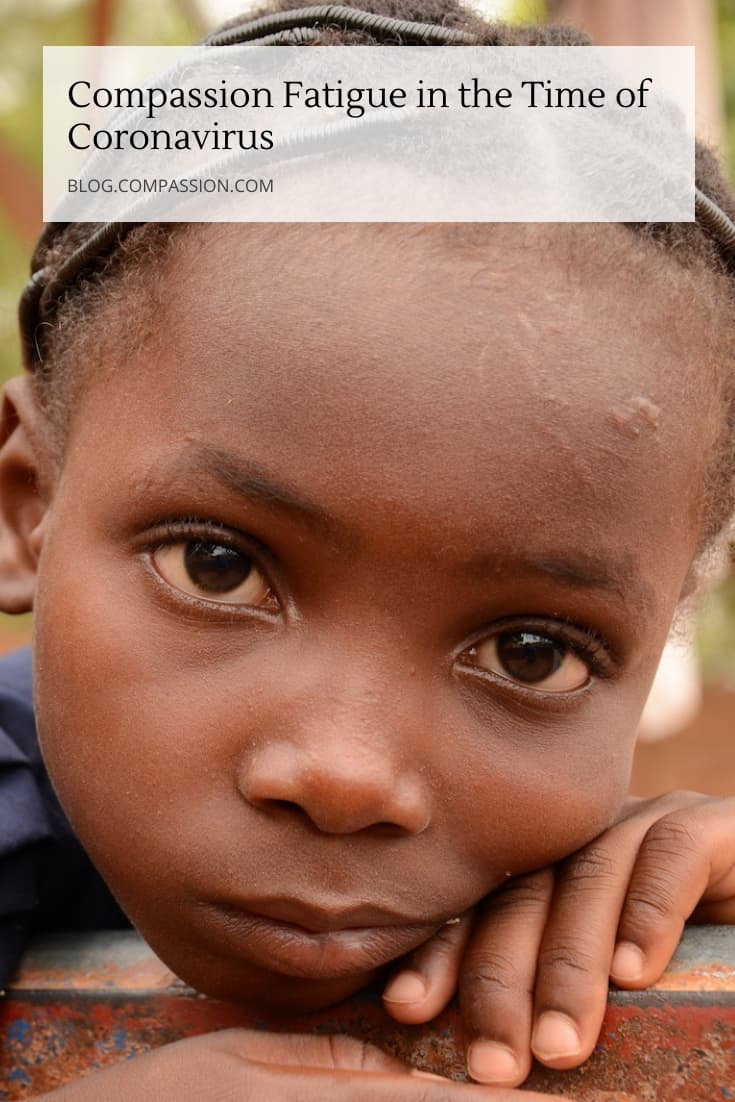Twelve years ago, I wrote a post for Compassion’s blog about compassion fatigue. I referenced 9/11 and Hurricane Katrina and the Asian tsunami and the China earthquake. I talked about how the incessant news coverage after each of these events caused me to reach a place of apathy, where my heart got tired of caring and I felt as though my empathy tank was on empty.
So here we are, a dozen years later. Now in the midst of a global pandemic, I’m experiencing the same thing. Different decade. Different circumstances. Same feelings.
Literally, I cannot get online without seeing some news headline or updated statistic or dire prediction about the outcome of COVID-19. And so once again, in light of the unending barrage of media coverage and tragedy, it seems my “care” gauge has maxed out.
Have you ever felt this way? It’s something known as “compassion fatigue.”
What is compassion fatigue?

It is when the broken state of the world and sheer number of things requiring your compassion cause you to reach a state of numbness and apathy. When you just stop caring because you simply cannot care anymore. Your heart cannot take it.
“The simple truth is that we are not God. As humans we do not have a capacity for infinite compassion.”
As humans, our capacity for compassion has an end.
Hearing bad news repeated over and over again — experiencing heartache and helplessness enough times in a row — can cause you to move to a place of total numbness. It’s our naturally built-in way of coping with ongoing pain. This is what occurs when you experience compassion fatigue.
Have you ever repeated a word over and over again, so many times that the word itself becomes meaningless? It’s no longer a word, latent with meaning, but just a sound? When you hear the word, it’s like hearing a language you don’t know. There is no meaning connected with it.
Likewise, when the faucet of news is continually on and exceeds your capacity for compassion, it all becomes meaningless. Nothing moves you because you’ve shut off the master switch in an attempt to not be overwhelmed.
For many of us processing the ever-changing reality of the current crisis, a similar thing occurs. The endless parade of stats and tweets and articles and charts goes on long enough that it all begins to blur. The content and numbers become meaningless. (Another day, another thousand deaths. Next headline?)
But as Christ-followers, compassion fatigue is not the place we want to stay.

We are called to love — God first and then others. And if we are in a place of compassion fatigue, it’s hard to care, much less love.
The good news is that we are not helpless when it comes to the bad news of the world. There are real things we can do to combat compassion fatigue. Also taken from the aforementioned friend, here are three practical ways you can do that:
1. Limit your intake.
If you are someone who begins to feel stressed out, depressed and anxious because of all the news we take in, consider setting boundaries. Don’t visit pages that include news that you do not need to know — things like horrific domestic crimes committed in Australia. While God cares about deeply about this, we are not each called to tend to this news, as it’s not where God has placed us to make a difference. Read your local paper and read world news from a source that is not prone to sensationalism.
2. Find your focus.
As Ephesians 2:10 says, God has prepared good works for us — he wants us to be engaging in specific ways in this world. Determine where you feel led to show God’s kindness and compassion. It might be a specific social issue in your community, such as foster children or homelessness. It might be a global issue such as HIV/AIDS or extreme poverty. Or it might be a particular people group or place, such as refugees or marginalized indigenous people groups. It might be several things. But it cannot be all the things.
3. Pray and seek God.
The last is the most important. We cannot do this on our own. If we find our compassion shriveling, we may have been trying to do it without God’s help. Pray for God’s help in caring for the hurts of the world. Ask that the Holy Spirit would fill you and give you God’s love, compassion and kindness. Daily refresh yourself at the waters of his love and compassion and stay rooted in the vine that will help you continue to grow rather than dry up to dust. You still won’t be able to care about everything equally. You’ll still need to pace yourself. But you will be equipped to do what it is that God has called you to do.
Beyond just avoiding compassion fatigue, we can find true soul rest.

Matthew reminds us of a promise Jesus made us:
“Come to me, all you who are weary and burdened, and I will give you rest. Take my yoke upon you and learn from me, for I am gentle and humble in heart, and you will find rest for your souls.” (Matthew 11:28-29)
Lean into God’s promise and look to him for your strength and soul rest. May we hand over our exhaustion to Christ and allow him to grow in us a God-sized capacity for true compassion.
Photos by Ben Adams, Nico Benalcazar and Serge Ismael Ouedraogo.








6 Comments |Add a comment
Take a few bags of groceries to your local food pantry and “compassionately respond to those needs that intersect our actual lives.” Many families and individuals in our own communities are in great need with unemployment rising and children unable to get free/reduced cost meals at school. I won’t be able to celebrate Mother’s Day with my children this year, but I’m blessed to have plenty of food and a roof over my head. So I emptied my cabinets of all the food I could spare and delivered it to our local food pantry this morning so that a few families will have a more joyful Mom’s Day this year in spite of the pandemic and unemployment. It put a smile on my face and some joy in my heart to be a blessing to those in need in my own community.
Ron, I agree. It does help me combat the fatigue to focus on the good things from this situation. I’m keeping a list of all the things I’m grateful for. I think I’m up to 24 now. 🙂 Thanks for sharing yours!
Asila, I’m so glad. I assumed there are others in the same boat.
Thank you for this. Good word. Praying for the world can be overwhelming sometimes.
May God bless all of you at Compassion.
This one really spoke to my heart. Thank you for this
Thank you Becky, this was a great read! Even though I haven’t reached this Compassion Fatigue level, doesn’t mean I haven’t felt concerned at times. Maybe I am just blessed with His work in me. Two special things have occurred for me which I will share with you. First, I have more time to write my five sponsored Compassion children, and I am trying at least every week to write one letter, sometimes two letters. In doing so I understand with their Centers closed they may receive a lot of letters when they do open, but think of the joy they all will have. I also see a hidden blessing coming back to me when I get each of their letters.
Second, this time has allowed for extra preparation for Compassion Sunday at our church. I am not point person for this wonderful event, but have been asked to share my experiences to the congregation. Reminiscing about the journey of the relationships forge, is uplifting to say the least. I started a scrapbook about four months ago which has all of our communications and pictures, and I find it to be a great way to see God’s work right in front of me.
Thank you again and many blessings,
Ron